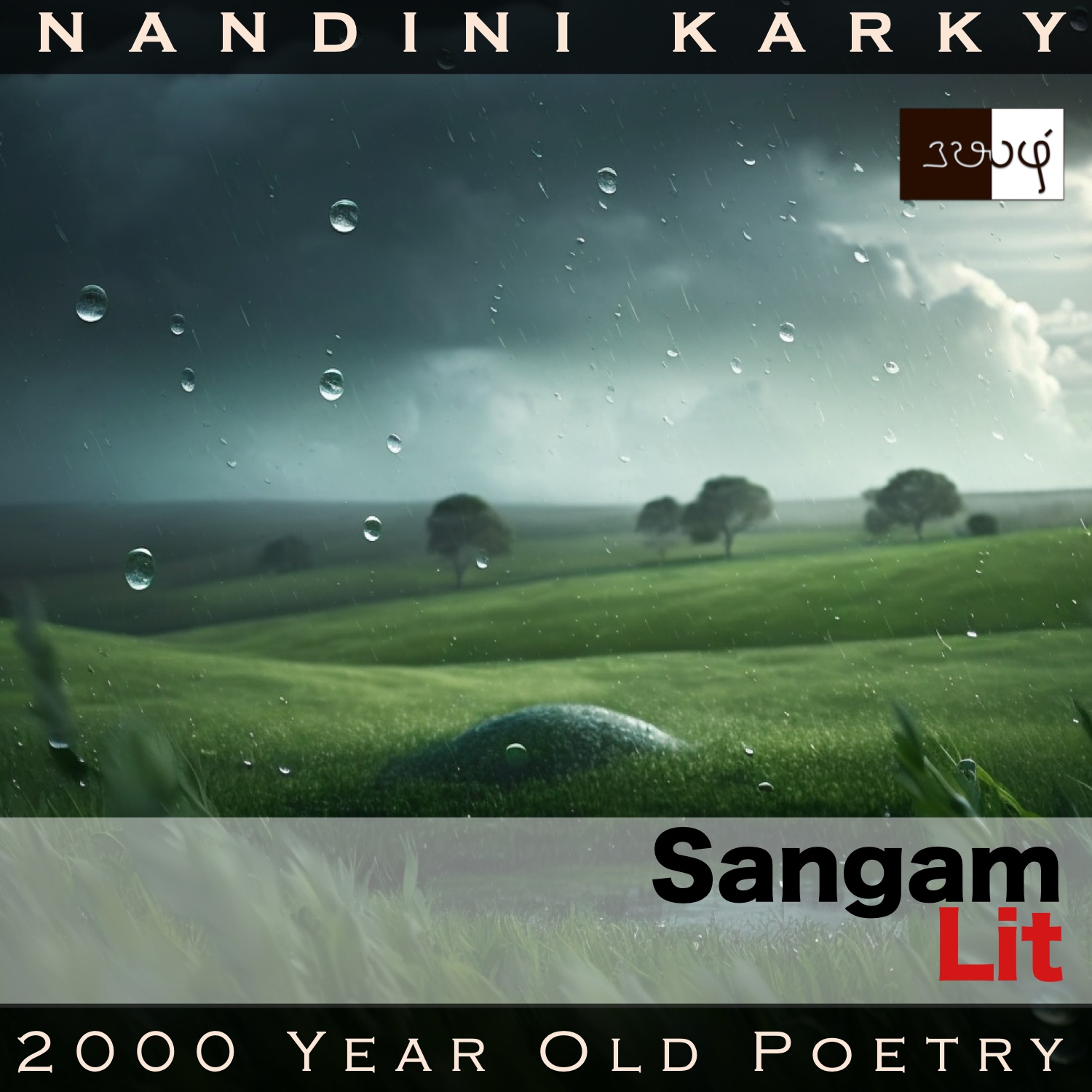Podcast: Play in new window | Download
Subscribe: Apple Podcasts | Spotify | Amazon Music | Android | iHeartRadio | TuneIn | RSS | More
In this episode, we hear of the impeccable generosity of a king, as portrayed in Sangam Literary work, Puranaanooru 123, penned about the Velir King Malaiyamaan Thirumudi Kaari by the poet Kabilar. Set in the category of ‘Paadaan Thinai’ or ‘King’s praise’, the verse reveals the nature of this ruler.

நாள் கள் உண்டு, நாள் மகிழ் மகிழின்,
யார்க்கும் எளிதே, தேர் ஈதல்லே;
தொலையா நல் இசை விளங்கு மலையன்
மகிழாது ஈத்த இழை அணி நெடுந் தேர்
பயன் கெழு முள்ளூர் மீமிசைப்
பட்ட மாரி உறையினும் பலவே.
A song in praise of this king’s charity. The poet’s words can be translated as follows:
“If one were to drink toddy during the day and be in an intoxicated state in the day court, it’s easy for him to render chariots to supplicants; But the illustrious Malaiyan, whose fame shall never fade, without even being intoxicated, has rendered ornamented tall chariots, so many that they are more in number than the raindrops that reside in the clouds above prosperous Mulloor!”
Time to delve into the nuances here. The poet starts by talking about a generic ruler who drinks toddy early in the morning and is in an inebriated state. For this person, who is not fully in his senses, it’s rather easy to give away chariots to supplicants because he isn’t thinking clearly, the poet implies. That sort of giving away, the poet contrasts with the charity of Malaiyan Kaari, who is never drunk in this fashion. He concludes with the thought that even so, the number of chariots the king gives away is more than the raindrops in the clouds above Kaari’s capital of Mulloor.
Perhaps you have often heard this question asked in disbelief in many a movie and in real life too – ‘Already drunk in the morning?’. Here too, in this ancient verse, there seems to be a subtle hint that drink and relaxation was not something that was done in the morning and if at all it was done, those people are sure to be mindless pleasure-seekers. This aspect is brought to highlight the clear thinking nature of this king. And not only that, by comparing the number of chariots the ruler gives away to supplicants to the raindrops above his domain, the poet also brings out what a fertile land that was, being blessed by the skies so. The only question I have is what would ordinary supplicants do with these chariots? It’s like the situation today when a person comes seeking food and alms and a patron gives them luxury cars instead. Also, would all these numerous chariots taken away by the supplicants cause a traffic jam of sorts in those ancient roads? Curious questions to ponder upon, wondering about what part of these verses is poetic license and what is truth and nothing but the truth!




Share your thoughts...